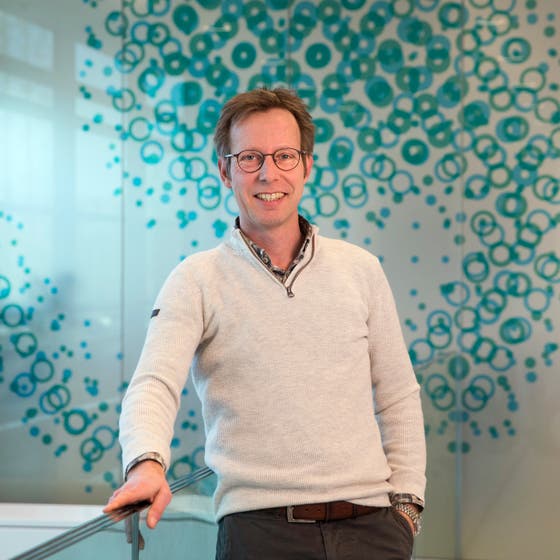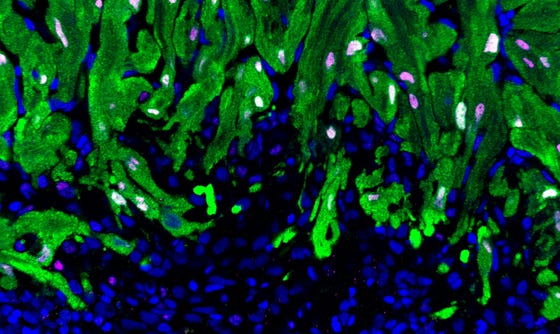Start of national study into congenital heart disease

About one in every hundred babies is born with congenital heart disease, of which many develop cardiovascular problems at a later age. Therefore, a large national study into congenital heart disease is launched. The goal of this project is to enable more people with ‘construction errors’ in the heart to grow old healthy. The project – worth three million euros in total – is financed by the Dutch Heart Foundation and Stichting Hartekind. Jeroen Bakkers, professor of Molecular Cardiogenetics at the UMC Utrecht and group leader at the Hubrecht Institute, is one of the leaders of the project.
Due to better healthcare and conducting surgery at a young age, survival rates of children with congenital heart disease have improved drastically. However, cardiovascular issues can arise later in life. “The pumping strength of the heart can deteriorate, or cardiac arrythmias can occur”, explains pediatric cardiologist and project leader Wim Helbing (Erasmus MC). “We do not yet understand how that happens, but this project allows us to investigate that further in order to gain insight into what can be done about it”.
Information about personal risk
The goal of the new project is to provide patients with better information about their personal risk for cardiovascular problems. That risk varies significantly per person because there are many types of heart diseases that vary in seriousness. The project team aims for earlier detection of heart disease and better treatment, which is important for the growing number of people that underwent heart surgery – an estimated 40.000 people in the Netherlands.
Collaboration between experts
As research into congenital heart disease is very complex, the help of many experts is required for the study. Unique about this project is the collaboration between clinical scientists – including pediatric cardiologists and cardiac surgeons – and more fundamental scientists. One of the experts affiliated with the study is Jeroen Bakkers, professor of Molecular Cardiogenetics and group leader at the Hubrecht Institute. He investigates cardiac muscle cells in the lab. With his research, he hopes to make a difference in the lives of patients with congenital heart disease.
Consequences for the heart muscle
Congenital heart disease can affect the function of the cardiac muscle. Bakkers: “Once the cardiac muscle of a patient does not function properly anymore, recovery is impossible. The cardiac muscle cells cannot divide to generate a new piece of muscle. That is one of the reasons why a part of the patients experiences deterioration of cardiac pumping strength.”
Learning from zebrafish
Bakkers’ research group uses zebrafish for their research. “We aim to help the cardiac muscle to become healthy again. We know that some animals, including zebrafish, are able to do this by themselves and we are trying to learn how they manage to do this. A previous research project with the Dutch Heart Foundation, yielded the discovery of a protein that can promote cell division in fish. In humans, the gene for this protein is “turned off”. We are looking for ways to activate this gene in order to promote cell division and thereby stimulate the generation of a new piece of cardiac muscle. If that works, people with congenital heart disease would have to suffer less from cardiovascular problems. That is our ultimate goal.”
Video and interviews
More information about the project can be found on www.hartstichting.nl/kinderen (only in Dutch). The interviews with the project leaders Jeroen Bakkers, Wim Helbing (Erasmus MC) and Mark Hazekamp (LUMC Leiden) can also be found here.

